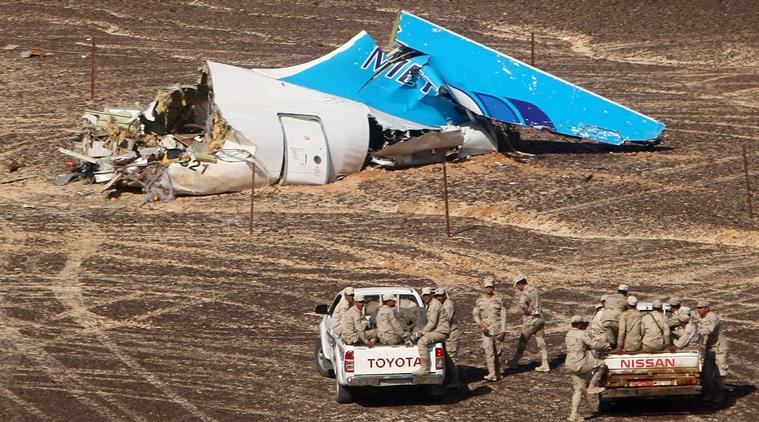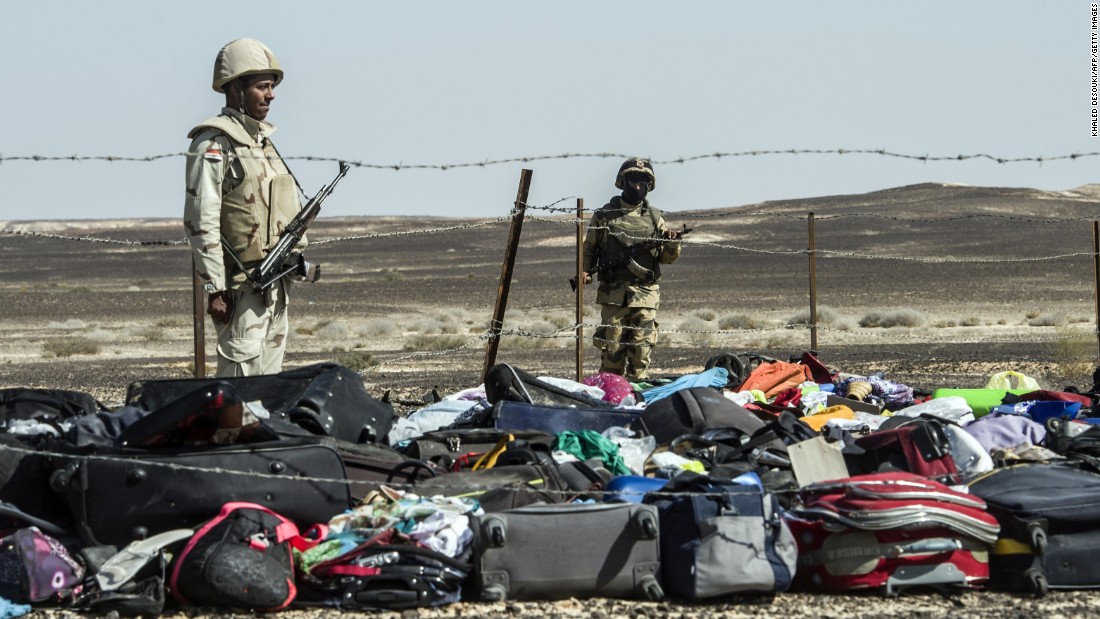
The Washington Post editors were perhaps guilty of being crude when they wrote the Egyptian and Russian regimes are “far less adept at fighting terrorism than they are at lying” in the wake of the Sinai plane crash.
However, the justification of Hassan Fayed’s angry demand for an apology from the newspaper on behalf of Egypt’s military and tourism industry was something else entirely.
The Washington Post said Egypt’s Abdel Fattah el-Sisi and Russia’s Vladimir Putin are using the fight against Islamic State to “accomplish other ends, such as repressing peaceful domestic opponents and distracting attention from declining living standards”. Hence, the downing of Flight 9268 represents a blow to them and their agendas, the tragic loss of life for Russia aside.
Mr Fayed concedes only that the Egyptian regime “has its flaws” and shows a “lack of respect” for human rights. He also confesses he was “surprised by the over-dramatic coverage” of a commercial jet crash. Googling ‘Malaysia Airlines flights 370 and 17’ might help.
Based on one editorial Mr Fayed argues that, “Western media needs to be put in its proper place”. He points to the disastrous invasion of Iraq and the subsequent emergence of ISIS as a bizarre justification for demanding “solidarity” with Egypt from the West’s government’s and media, whatever that means, during this “critical period”.
British Prime Minister David Cameron, to whom it was left to reveal the increasingly likely bomb theory, was faced with 20,000 tourists in Sharm el-Sheik in the wake of the crash. Egyptian Transportation Minister Saad el Geyoushi responded by denying the theory and cutting the number of British flights to London, frustrating evacuation efforts. Sinai Province, an affiliate of ISIS, has claimed responsibility for the crash. Twice.
Time is of the essence in such circumstances and the Washington Post was right to call out such “bluster and obfuscation”. The Egyptian government’s apparent inability to immediately grasp the gravity of the situation, or willingness to downplay it, has implications for its legitimacy. The newspaper was right to point this out too.
Russia has since suspended all flights to Sharm el Sheikh and Egypt’s government has now begun its own investigation into the bomb theory.
If Mr Fayed acknowledged how the Egyptian regime has fanned the flames of insurgency by locking up thousands of political opponents without due process, his criticisms of American foreign policy in the Middle East would be more convincing.
If Mr Fayed explained how Egypt’s state-controlled media has cheered on the regime during this campaign, his protests about the apparent lack of western sympathy towards Egypt’s tourism industry would be more convincing.
If Mr Fayed noted how many Western journalists in Egypt have been subjected to a campaign of intimidation and imprisonment, like countless independent Egyptian counterparts, his attack on western media in general would be more convincing.
Sadly, he’s lacking on all three counts.
“The claim that Egypt is failing in its fight against terrorism is simply a lie,” writes Mr Fayed. He recalls the often gruesome instability Egypt faced after the fall of the Muslim Brotherhood and talks up the victories the army has secured in the North Sinai.
“Today, most of the country is safe and people wander the streets freely without fear of being blown up,” he writes.
Military action in the Sinai, which remains unstable, isn’t what stabilised Egypt. What stabilised Egypt after the toppling of a disastrous, democratically elected government of Mohammed Morsi by the military, was a ruthless squashing of enough vocal opponents of a return to autocratic rule.
While Mr Sisi has since been elected, human rights groups estimate thousands were killed during the aftermath of Morsi. Many more thousands were imprisoned, with ongoing allegations of torture – all in the name of stability and fighting terrorism.
Mr Fayed makes no mention of any of this.
“The Post’s claim that Egypt has failed in fighting the insurgency is an insult to the sacrifice of our soldiers and policemen,” he writes. Perhaps it is. But Mr Fayed’s failure to acknowledge even a hint of the brutality with which this regime has returned power in Egypt, so he can smear western journalists who oppose such behaviour, would therefore be an insult to the thousands of innocent Egyptians behind bars.
Mr Fayed points out, quite rightly, that the charge of “dishonesty” from the US is terribly received throughout the Middle East. The region is dealing with the lingering consequences of perhaps the most egregious foreign policy disaster of this century – weapons of mass destruction.
“Even if the Egyptian government were to ‘lie’ about the bombing of this plane, it would be to protect a crippled tourism industry that provides jobs for four million Egyptians, not to invade a country and extract its oil,” he writes.
One can only conclude such a lie would be to heroically protect Egypt’s tourism industry if one ignored how the liars brutalised everyday Egyptians to reclaim their power.
Mr Fayed adds that the Washington Post has reported on how the Camp Bucca prison in southern Iraq, which wouldn’t have existed without that ‘false intelligence’ of WMDs, became a crucial breeding ground for ISIS. Innocent prisoners and non-violent offenders rubbed shoulders with an unholy union of Islamist extremists and members of the Iraqi Ba’ath Party and became radicalised.
The entire region would suffer. “No US or UK official has been held accountable for this lie until today,” he writes.
All of this is perfectly reasonable criticism by comparison. Well, that’s if you fail to mention the Egyptian regime has also thrown thousands of innocent people into prison next to hardened Islamist extremists with no due process. It’s been pointed out repeatedly that the same kind of toxic prison environment that encourages radicalisation, which Mr Fayed and indeed any non-sociopath opposes, has almost certainly been created in Egypt.
Additionally, the Egyptian government has thrown dozens of journalists in jail for doing their jobs, withheld press accreditation and bugged the phones of many they didn’t throw behind bars, then outlawed reporting information on terrorist attacks that contradict the state.
The kind of accountability Mr Fayed wishes, indeed we all wish, the US and UK were held to in 2004 isn’t just unlikely in Egypt – it’s illegal. Is this the kind of policy western journalists are supposed to stand in “solidarity” with? The Washington Post stood in solidarity with the people of Egypt whose rights have been savagely usurped by their government for the sake of fighting terrorism. This is not what Mr Fayed wants. “Western media and governments should instead support Egypt at this critical period, as Egypt strongly supported the West in the wake of the 9/11 attacks and continues to do so today,” he concludes.
The disastrous invasion of Iraq shows how governments can use the promise of security to inflict immeasurable human rights abuses in the wake of terrorist attacks. These have widespread consequences for the country where those abuses occur, and beyond. Egypt’s regime is making many of the same mistakes and only constant scrutiny can prevent further damage.







Comments (0)